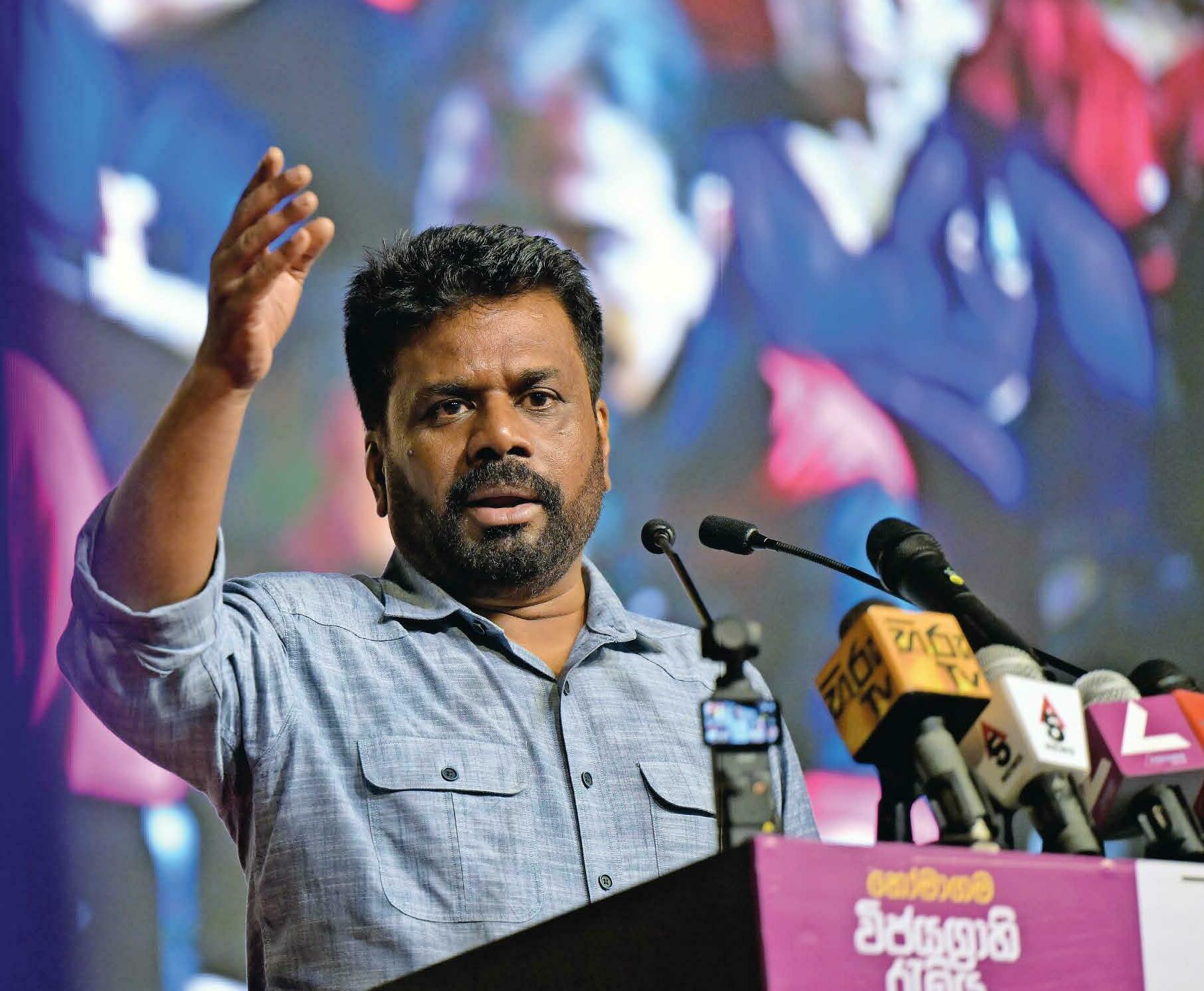
Q/ How important is this presidential election for Sri Lanka?
A/ It is the most important election in Sri Lanka’s history. In every election, power shifts from one ruling faction to another. Initially, these groups had distinct identities, but over the past two to three decades, they have become almost indistinguishably merged. As a result, while governments have changed since 1994, many of the same individuals continuously held ministerial positions across administrations. Some have even supported conflicting constitutional amendments over time. Thus far, elections have not led to any significant change in the governance structure.
Therefore, this election is crucial because it offers a unique opportunity to reshape the economic, social and political path of our country, steering it in a completely new direction. It brings the government closer to the people, with the promise of a brighter future. While we have proposed these goals before, this is the first time we have the power to effect meaningful change. The transfer of power will be driven by a public movement rooted in the people’s interest, breaking away from the traditional cycles of power.
Q/ Do you think the Aragalaya uprising in 2022 made the NPP popular?
A/ The struggle emerged as an outcry against the oppression faced by the people. Imagine a country where one family ruled, leading to a situation where there was no oil, gas or electricity, children were deprived of basic necessities like milk powder, and people could no longer sustain their livelihoods. The last resort was to take to the streets and oust the ruling elite. If the people themselves build a government, it is their right to rise up again, should their expectations be betrayed. Such a struggle is not only justified, but also fair.
Q/ You were also a part of it.
Diese Geschichte stammt aus der September 22, 2024-Ausgabe von THE WEEK India.
Starten Sie Ihre 7-tägige kostenlose Testversion von Magzter GOLD, um auf Tausende kuratierte Premium-Storys sowie über 8.000 Zeitschriften und Zeitungen zuzugreifen.
Bereits Abonnent ? Anmelden
Diese Geschichte stammt aus der September 22, 2024-Ausgabe von THE WEEK India.
Starten Sie Ihre 7-tägige kostenlose Testversion von Magzter GOLD, um auf Tausende kuratierte Premium-Storys sowie über 8.000 Zeitschriften und Zeitungen zuzugreifen.
Bereits Abonnent? Anmelden

Forging the future
As the curtain falls on 2024, I take pride in the extraordinary milestones achieved under the leadership of Prime Minister Narendra Modi. This year stands as a testament to the Modi government's resolve to forge a resilient and forward-looking Bharat. From groundbreaking advancements in infrastructure to visionary global initiatives, these efforts resonate deeply with the vision of Viksit Bharat.

Our strange democracy
Abraham Lincoln is lauded as among the very best presidents the US ever had: the statesman par excellence successfully steered the nation through the devastating and perilous years of the American civil war. Not only did Lincoln manage to keep his country united, he also ensured the passage of the 13th amendment to the US constitution, which abolished slavery.

Five years of post-pandemic fashion
It has been five years since we discovered what Covid-19 was, and five years since it disrupted the world forever. The World Health Organization activated their emergency systems on January 1, 2020, and informed the world by January 4, 2020. By the end of that week, they had set guidelines for various countries to follow. Comparable to the Spanish flu of 1918, more than 7 million people have died of Covid according to official data. Unofficially, no one has an idea. WHO has just this week asked China to provide critical data to understand the virus's origins as a “moral and scientific imperative”.

Community spirit
Rhythm of Dammam opens a window to the world of African-origin Siddis of Uttara Kannada

'Breaking' down a scandal
Society Girl is not just a case study of a high-profile death in Pakistan but also a stark commentary on media trials

Progress card
Jasmine Shah's book tells you what the AAP has achieved in Delhi in the last 10 years

SENSE IN NONSENSE
In his latest book of poetry, Ruskin Bond is at his funniest

Get ready for Trump bump
The ‘butterfly effect’ is a beautiful, mysterious metaphor of the planet’s interconnectedness.

QUIET FLOWS THE FAITH
The melding of an ancient amorphous faith and the latest science; of an antique tradition and new practices; ways of life older than memory and new expressions is happening at Prayagraj in Uttar Pradesh.

Trash to treasure
How a weed-choked Dal Lake spurred Maninder Singh's journey to become a waste management visionary